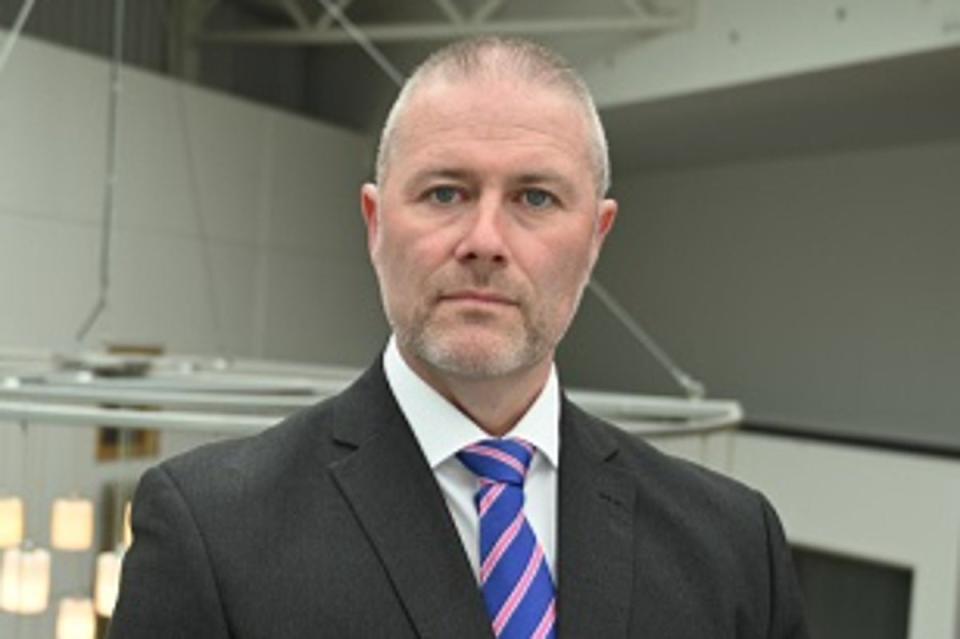Police have ‘grave concern’ at driving ambulances during paramedic strike

The Police Federation has expressed its grave concern that the “overstretched” thin blue line will be drafted to fill in for striking ambulance drivers.
Under national contingency plans it was understood that military personnel would be drafted in to help drive ambulances as strikes go ahead later this month.
But now it has emerged that police officers may also be called upon to help drive the emergency healthcare vehicles.
It’s important to remember every officer that would be driving an ambulance is an officer not preforming their police duties
Police Federation national chair Steve Hartshorn
The Police Federation, the body representing around 140,000 rank and file officers, said that “police are not ambulance drivers or qualified paramedics”.
National chairman Steve Hartshorn said the request is of “grave concern” as he warned that putting officers in ambulances would mean they are “not performing their police duties”.
The staff association said that the “thin blue line is already overstretched and under pressure like never before”.
Ambulance crews in England are due to walk out for two days on December 21 and 28 in support of their pay claim.
"At a time when the thin blue line is over stretched and under pressure like never before, this request gives me grave concern for the welfare of our members."
National Chair Steve Hartshorn responds to the request for police officers to cover striking ambulance drivers.— Police Federation (@PFEW_HQ) December 13, 2022
Mr Hartshorn said: “Later this month we will witness the biggest ambulance strike action in 30 years.
“Ambulance workers from all three unions are due to walk out on 21 December – this means that ambulance drivers, paramedics, call handlers and emergency care assistants will refuse to work across 10 of the 11 trusts in England and Wales.
“A further strike is due to take place on the 28 December by members of the GMB union.”

He said police officers are “unable to express our own frustrations through strike action, even though we step in as a last resort to ensure public safety when others strike,” adding: “It is no different with the ambulance workers’ strike as our members are being asked to step in and drive ambulances; it shouldn’t need saying, but police are not ambulance drivers or qualified paramedics.
“At a time when the thin blue line is overstretched and under pressure like never before, this request gives me grave concern for the welfare of our members.”
Mr Hartshorn continued: “Police officers driving ambulances may make sense to some; many officers are uniquely qualified to drive both emergency service vehicles, but this is where any similarity ends.
“It’s important to remember every officer that would be driving an ambulance is an officer not performing their police duties.
“I have genuine concern for any officer who may be exposed to medical emergencies they are not qualified to act on.
“The human consequences are awful to imagine, but we must consider the legal responsibilities and practicalities too. Should a patient die in the presence of a police officer, or within a period of time of being with a police officer, that officer is referred to the Independent Office for Police Conduct for investigation.”
It comes after it emerged that the armed forces have just 40 paramedics who would be qualified to work in the NHS,
Defence minister Andrew Murrison said that of the 107 paramedics serving in the military, 40 have the qualification requirements set out by the Health and Care Professions Council.
The details, set out in a written answer to Liberal Democrat health spokeswoman Daisy Cooper, were disclosed as ministers prepare to deploy troops to cover for striking ambulance staff.
It is understood that troops are unlikely to be used to drive ambulances to respond to urgent calls although they could be used for non-urgent cases to free up paramedics.
The Department of Health and Social Care has been contacted for comment.

 Yahoo Finance
Yahoo Finance 